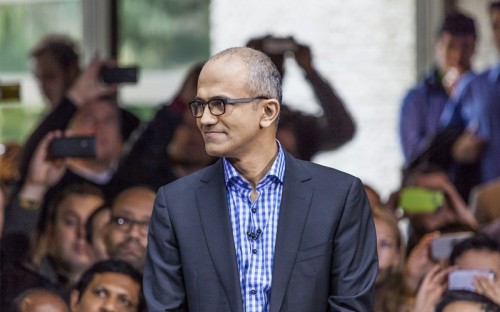A quarter of business school alumni are in executive-level jobs 10 years after graduation, according to a new survey, with many climbing to the C-suite.
Business schools have long been considered a route to the C-suit and today an MBA is still a viable path to chief executive positions.A quarter of business school alumni are in executive-level jobs 10 years after graduation, according to a new survey of alumni by the Graduate Management Admissions Council, administrators of the business school entrance exam the GMAT.
A decade after graduating, 11% of alumni are also at the highest levels of their companies, according to GMAC – such as in chief financial officer and CEO positions.
C-suite alumni are 17 years removed from graduation on average, and men are more likely than women to have a CEO position today, according to the survey data.
A year after leaving business school, more than half of the alumni are in mid-level positions, regardless of graduation year. Five years after graduation, most alumni are in senior and executive-level positions.
The findings echo similar research published in 2015 which found that 31% of chief executives leading the world’s largest companies by market capitalization are holders of MBA degrees.
This includes Satya Nadella, Microsoft’s CEO, who graduated from Chicago's Booth School of Business, and drugs giant AstraZeneca’s chief executive Pascal Soriot, who graduated from the MBA at HEC Paris.
Sangeet Chowfla, GMAC president, said that business degree holders say their education is a solid investment and a spur to achievement, even in unstable economic times.
“A graduate management education isn’t just a degree, it’s a career catalyst,” he said.
But just 15% of C-suite alumni attribute their career success to their business education, compared with the 32% who attribute their success to personal effort.
C-suite alumni at large listed companies include JPMorgan Chase CEO Jamie Dimon, who earned an MBA at Harvard Business School, and Schneider Electric chief executive Jean-Pascal Tricoire, an alumnus of EMLYON Business School in France.
Overall, 90% of alumni GMAC surveyed credit their business education with increasing their earning power.
Business graduates in Switzerland reported the highest salaries, $164,800 on average. The UK’s graduates have the second-highest wages, earning $134,300 in average salary.
Graduates in the US reported salaries of $110,000, lower than alumni in Australia, who earn $113,950 on average and on a par with graduates in the United Arab Emirates, who also earn $110,000 in salary.
GMAC also gauged the entrepreneurial orientation of alumni. Companies are relying more frequently today on the innovative, proactive, and risk-taking behaviours of their own employees to help drive their growth, the report says.
The survey found that self-employed alumni and those occupying the C-suite score higher on proactiveness, innovation and risk-taking when compared with lower-level alumni.
Other C-suite executives who come from business schools include Kellogg School of Management alumnus Bill McDermott, who heads SAP, the German software company, and Coca-Cola chief executive Muhtar Kent, who earned an MBA at Cass Business School.
Business school has proved to be valuable. More than four in five alumni say their business education has contributed positively to their competitiveness (85%), innovativeness (82%), autonomy (81%), creativity (75%) and risk tolerance (74%).
Approximately 84% of alumni surveyed say they use the knowledge, skills and abilities they learned while at business school every day in their current careers.
Business graduates are also keen to continue their learning. About 40% of alumni expect to attend professional seminars, 27% plan to study a Mooc, or massive open online course, with courses related to data analytics cited as particularly popular.
But only a small minority plan to enrol in another degree, preferring instead to begin a certification program.
There are also changes in the career destinations of business school graduates, with the technology industry in particular growing in popularity, according to 2014 careers reports.
GMAC data show that graduates from recent years are more likely to be found working in the products and services, technology, and consulting sectors, while alumni who graduated before 1980 have a greater presence in the finance and accounting industries.
The biggest shift, however, was the fall in the number of graduates working in government and non-profit sectors, with the figure at 29% between 1980 and 1989, but today just 9% of alumni work in those sectors.

Student Reviews
Best Journalism school in Europe
When I first stepped onto the campus of City, University of London, I knew I was in for a ride - and not just on the Tube! With its vibrant energy and an impressive repertoire of programs, City U became my home away from home.
The Journalism program was kind of a big deal. Rumour was that we were the best in Europe!
The lecturers were not just experts in their field; they’re practically journalistic royalty. They were invested, passionate, and had a knack for turning the most flat press release into a riveting news story. With their guidance, I’ve learned to navigate the chaotic world of media like a pro.
The campus was a melting pot of every culture, being that we had such a diverse international crowd.
Being in the heart of London, I had the world at my fingertips - there was always a new corner to explore, a hidden gem of a cafe to discover, or a street performer!
City, University of London wasn't just a university; it was a chapter in my life story that I’ll never forget.
Learning environment
The teacher-learner ration is manageable, giving each learner a chance to gain personal attention. It is also easier following up on the progress of a student, as the numbers per class is not large. the conducive environment for learning includes clean classes, standard desks, world class instructional facilities and the opportunity to engage lecturers even after their sessions. The team spirit at City is above board, with learners getting chance to learn both from instructors and colleagues. This is the university of choice; the place to be.
Classes
I liked that each class had a manageable number of learners, making the professor-learner ratio favor knowledge acquisition. I also liked that study schedules were manageable, and not overwhelming. The focus on talents and gifts even within the learning environment makes it possible for learners to achieve the best of their potential, and this has worked to the advantage of those that have schooled at City, University of London
Classes
The diversity at City University facilitates interactions and is a direction toward the unity of the world. The classes are well built to match the number and needs of all students regardless of the elements of diversity that set people apart. The use of technology in delivery makes learning even more interesting and achievable. At City University there is no distinction pegged on the issues that make people unique.
professors
The team of lecturers at the Uiversity are well experienced. Their level of insight and the methodologies of delivery works for the interes of the leaeners. My learning experience was largely boosted by the level of knowledge of the professors at the institution, and their passion to transfer the same to learners. I appreciate every class I attended because of the level of insight I was able to gather
The best university I’ve been to
The campus and the people I've met have made it a wonderful experience. I was reared in a small town with a graduating class of only 88 individuals, so moving to City University was a huge adjustment for me. My dorm has more residents than my whole high school combined! I enjoy the atmosphere here, and everyone is so friendly. Outstanding academic options and a stunning campus. Really great from beginning to end. The educators genuinely love what they do, and the students are ready to learn. On or around college, there is always something to do with friends, and the social scene is particularly warm.
Bayes Business School
As a student at City university attending Bayes Business School I would totally recommend choosing this university as the experience is exceptional with great social networking opportunities . Professors are significantly helpful, delivering with excellence and professionalism. Everyone is happy to help and make you feel welcomed in such an esteem university as City, offering exceptional development and guidance through out the course.
Economics and Politics
Incredibly amazing university, the way they polish students and help them boost their morale and think intellectually is worthwhile. Many universities have international partnerships to allow exchanges between their students. The most obvious subjects for these opportunities would be those that involve languages, and the study of people and places.
Clinical biology
I really like it it’s perfect for me with not too many people and not too few either. All the modules are amazing. I love the toy bar. I love all the societies that I’ma part of. Especially the colour Bollywood society
Unlocking My Potential at City University London
My time at City University London was truly transformative. The university's vibrant community and diverse extracurricular activities allowed me to forge lifelong friendships and professional connections that extend beyond the classroom. I was impressed by the university's commitment to academic rigor, character development, and personal growth, which created an ideal environment for me to reach my full potential. The research-driven and industry-relevant curriculum provided me with a solid foundation in international business, while the dedicated faculty and staff offered invaluable guidance and support. I feel grateful for the well-rounded education and holistic experience that City University London offered, preparing me for success in my career and beyond.
Rather interesting
The academics are tough, but in a good way. The professors are experts in their fields, so you know you’re learning from the best. They push you to think for yourself and really dive deep into the subjects. But it’s not all about hitting the books; London itself is like an extension of the campus. You’ve got museums, galleries, and just the general buzz of the city to keep you inspired.
Urban campus life
At the University of London, I have experienced dynamic and diverse academic environment where I was challenged by rigorous coursework. You will have the flexibility to choose from the wide range of courses, participate in numerous extra-curricular activities and take advantage of the many opportunities









